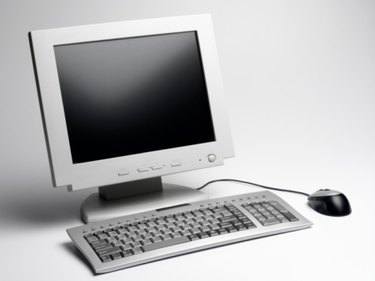
High reliability, scalability and powerful features make UNIX a popular operating system, according to Intel. Now beyond its 40th year as of 2010, UNIX is the backbone of many data centers including the Internet. Big players using UNIX include Sun Microsystems, Apple Inc., Hewlett-Packard and AT&T, which is the original parent company of UNIX. The Open Group owns all UNIX specifications and the trademark, which are freely accessible and available over the Internet.
Multitasking and Portability
The main features of UNIX include multiuser, multitasking and portability capabilities. Multiple users access the system by connecting to points known as terminals. Several users can run multiple programs or processes simultaneously on one system. UNIX uses a high-level language that is easy to comprehend, modify and transfer to other machines, which means you can change language codes according to the requirements of new hardware on your computer. You, therefore, have the flexibility to choose any hardware, modify the UNIX codes accordingly and use UNIX across multiple architectures.
Video of the Day
The Kernel and the Shell
The hub of a UNIX operating system, the kernel manages the applications and peripherals on a system. Together, the kernel and the shell carry out your requests and commands. You communicate with your system through the UNIX shell, which translates to the kernel. When you turn on your terminal, a system process starts that overlooks your inputs. When you enter your password, the system associates the shell program with your terminal. The shell allows you to customize options even if you are not technically savvy. For example, if you partially type a command, the shell anticipates the command for which you are aiming and displays the command for you. The UNIX shell is a program that gives and displays your prompts and, in conjunction with the kernel, executes your commands. The shell even maintains a history of the commands you enter, allowing you to reuse a command by scrolling through your history of commands.
Files and Processes
All the functions in UNIX involve either a file or a process. Processes are executions of programs, while files are collections of data created by you. Files may include a document, programming instructions for the system or a directory. UNIX uses a hierarchical file structure in its design that starts with a root directory--signified by the forward slash (/). The root is followed by its subdirectories, as in an inverted tree, and ends with the file. In the example "/Demand/Articles/UNIX.doc," the main directory "Demand" has a subdirectory "Articles," which has a file "UNIX.doc."